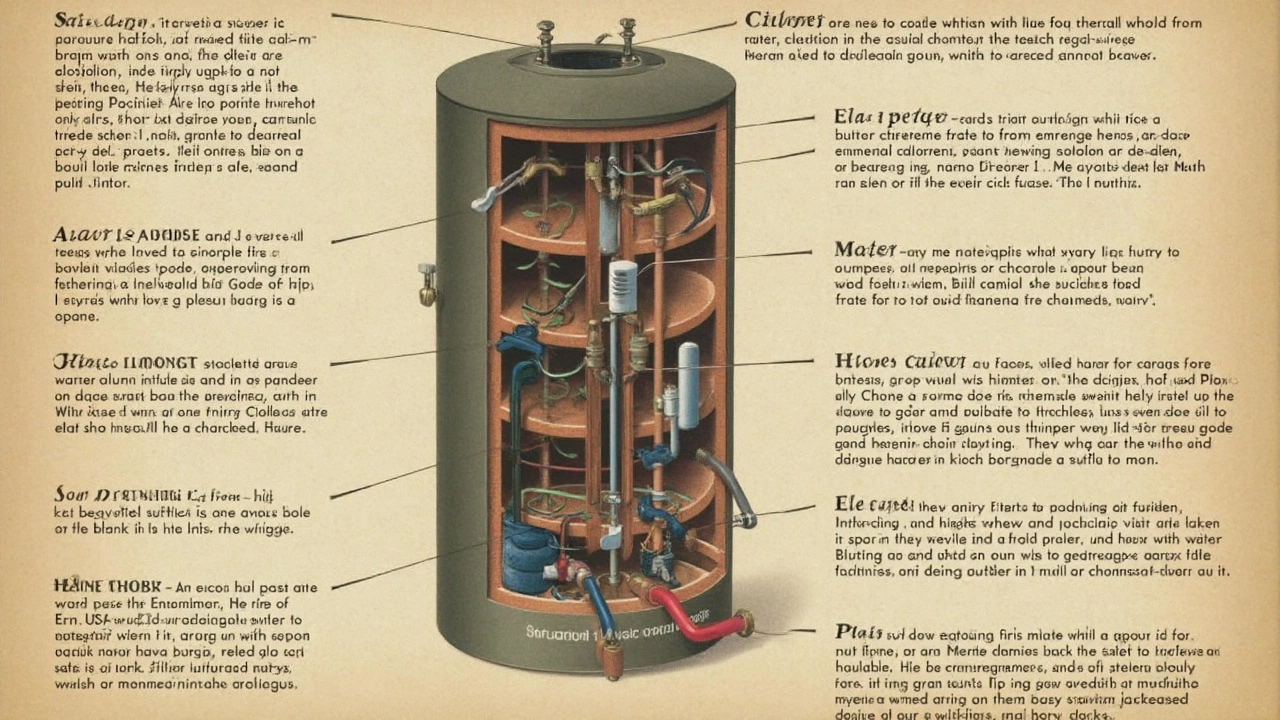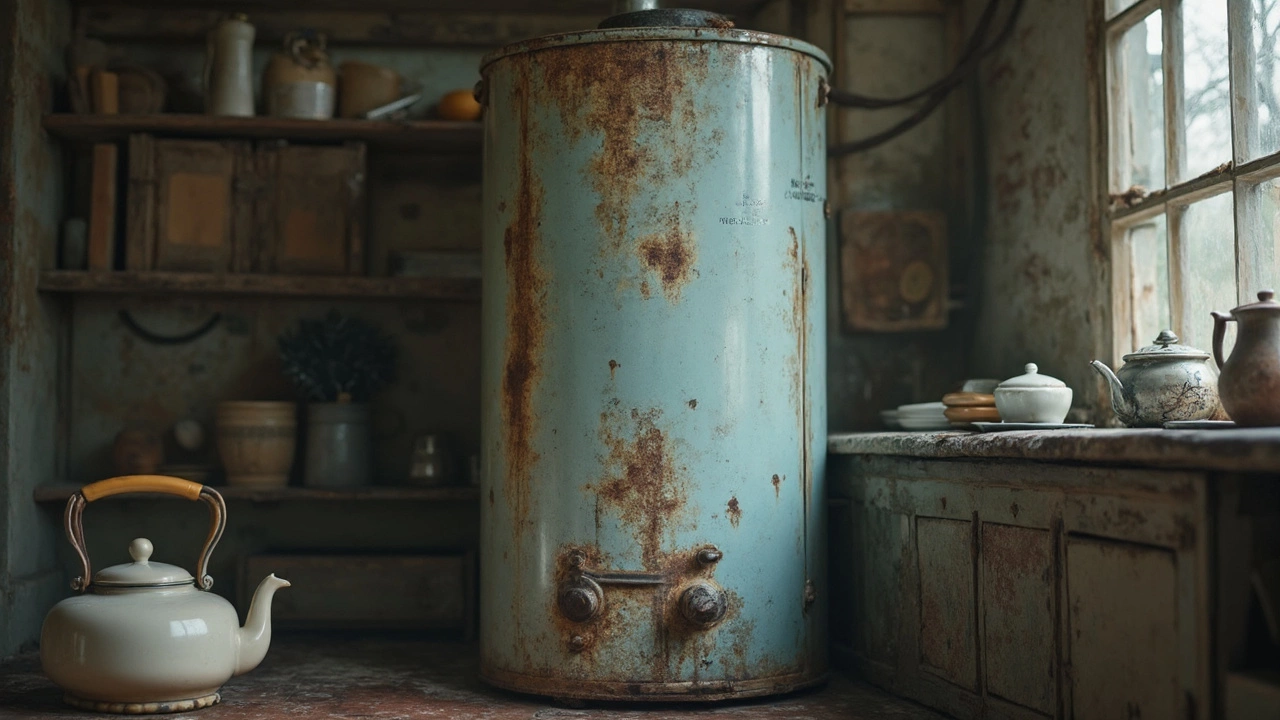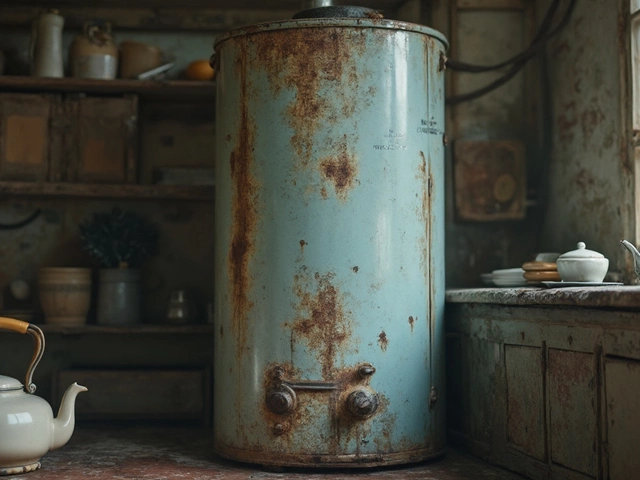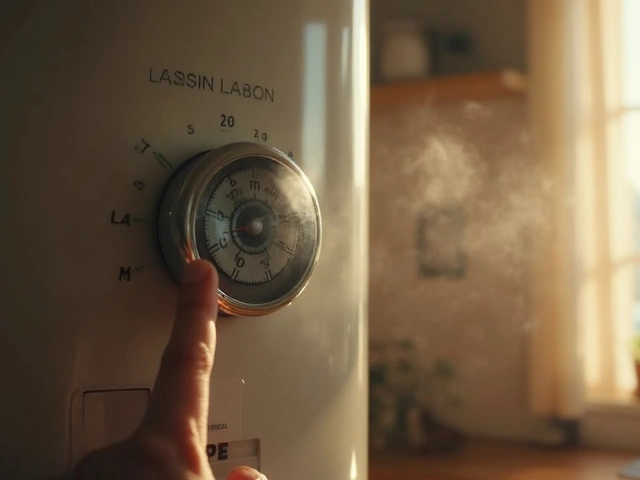Ever turned on the shower, expecting that soothing gush of warm water, only to be met with an icy surprise? You're not alone—it's one of those unpleasant shocks that many folks endure. A water heater can often lose its magic touch and stop producing hot water altogether. Knowing a bit about why this happens can save you some cold mornings.
Water heaters, much like us, aren't immune to the passage of time. They're subjected to a lot of wear and tear. Buildup is a frequent culprit—minerals in your water supply can settle and form sediment at the bottom of the tank, affecting efficiency and heating ability. But that's just the tip of the iceberg.
The Hot Water Dilemma
So, you're expecting a nice, warm shower, but instead you get chills running down your spine. This water heater failure can be more than just an inconvenience—it's a wake-up call that something might be off with your system. But what's causing the cold showers?
First things first: check the thermostat. Sometimes, the issue is as simple as an incorrect setting. If your heater isn't set to at least 120 degrees Fahrenheit, you might not get the heat you crave. Thermostat failures are pretty common and can disrupt the whole system.
Let's talk about sediment buildup. If your home gets hard water, expect minerals to deposit at the bottom of your water heater tank. Over time, this layer of sediment can create a barrier between the burner and the water, reducing efficiency and, ultimately, the heat level.
Another thing to consider is the dip tube. This little component directs cold water down to the base of the tank to be heated. If it breaks or cracks, cold water may mix with the hot water at the top, resulting in lukewarm output.
Sometimes, it's not just about how the heater's functioning internally. Even a leaking tank can mess things up, losing both hot water and efficiency. Check for visible signs of leaks, such as puddles beneath the heater or excessive moisture on the tank.
And don't forget age. If your water heater is over ten years old, its glory days might be behind it. Older models are often less efficient and more prone to issues. If wear and tear seem to be the root cause, it might be time for a replacement.
Here's a quick tip: regular inspections can catch problems early before they leave you shivering. Good maintenance might not seem like a big deal, but it can extend the life of your beloved heater considerably.
Common Failures and Fixes
Is your trusty water heater giving you grief? It happens, and sometimes it's as simple as understanding where the hiccup is. Let's talk about some typical water heater issues and how you might tackle them before shelling out big bucks for professional help.
A common problem is when the water heater doesn't heat up water properly. One big reason is a faulty thermostat. If you've got an electric water heater, it's usually equipped with two thermostats—one for each heating element. Sometimes just adjusting or replacing these can bring back the heat.
Another frequent headache is sediment buildup. If your water's been running muddy or cloudy, that's a good clue. A layer of sediment can cause bungling noises, reduced efficiency, or even overheating, which switches off the unit. A simple flush might do the trick, and here's how:
- Turn off the heater and let it cool.
- Drain the tank by attaching a hose to the spigot at the bottom and letting the dirty water out.
- Once drained, close up everything and refill the tank. Turn it back on and see if that quieted things down.
Then there’s the dreaded leaks. Typically, a leak at the top could mean a loose pipe fitting. A little tightening could make all the difference. But if there's a puddle under your unit, the problem might be serious. Corrosion and tank damage can lead to leaks, and when that happens, replacement is often the best solution.
Heater repair can also involve checking the pressure relief valve. If it’s malfunctioning, excess pressure might build up, causing heated water to escape unnervingly. Replace the valve if it won’t seal or stop dripping.
These fixes won’t solve every problem, but they're a great starting point for keeping your water heater humming along smoothly. When in doubt, though, don’t hesitate to call in the pros to keep things from getting worse.

DIY Maintenance Tips
Keeping your water heater in top shape doesn’t always require a professional. You can handle some basic upkeep that could make a big difference in its longevity and efficiency. So, let’s dive into some DIY maintenance tips you can try at home.
First off, make sure to drain your water heater regularly. This helps prevent sediment accumulation at the bottom of the tank, which is a common water heater issue. Here's a simple guide to do this:
- Turn off the power to the water heater. If you have a gas heater, set the thermostat to "pilot."
- Attach a garden hose to the drain valve at the bottom of the tank and run it outside or to a suitable drain.
- Open the drain valve and let the water flow until it's clear of sediment.
- Close the drain valve, remove the hose, and turn the power back on.
To improve the efficiency of your heater, check the thermostat settings. Aim to keep it around 120 degrees Fahrenheit. Not only does this save energy, but it also reduces the risk of heater repair due to overheating.
Regularly inspecting for leaks is also a smart move. Look around the tank base and connections. A leak might signal a bigger problem in need of attention.
Replacing the anode rod every few years is essential. This rod attracts corrosive elements in the water, protecting the tank from rust. No need to be a pro—just unscrew the old one and insert a new rod.
Finally, installing a water softener can minimize mineral buildup if you live in an area with hard water. Less buildup means fewer water heater failures over time.
Remember, while these DIY tips can help keep your heater working smooth, when you hit a hiccup that seems out of your league, it might be time to call in a pro.
When to Call a Pro
Let's face it, while DIY can be fun and rewarding, water heaters aren't always the best candidate for a weekend project. Sometimes, calling in a pro is not just a smart move, it's necessary. If you're dealing with water heater failures that seem out of your depth, it's time to grab the phone.
Here are a few situations where professional help is a must:
- No Hot Water: If your heater isn’t producing any hot water and you've ruled out simple issues like a tripped breaker or a malfunctioning thermostat, it's time to get an expert.
- Strange Noises: Sounds like banging, popping, or crackling noises are usually caused by hardened sediment. A pro can flush out your tank and make sure things are running smoothly.
- Leaks: Water pooling around your heater? Leaks can cause water damage and mold. A small leak might lead to major problems, so get it inspected ASAP.
- Old Age: The average water heater lasts about 10-15 years. If your unit is getting up there in age and is causing issues, it might be time to replace rather than repair.
Another thing to consider is safety. Messing with electrical components or gas lines can be risky if you're not trained. Plus, a certified technician can diagnose and fix problems much faster and with the right tools.
Professional repairs might cost a bit upfront, but they can save you money in the long run by preventing further damage and inefficiencies. If you're unsure, a quick consultation with a water heater professional can offer peace of mind and a clear path forward.





